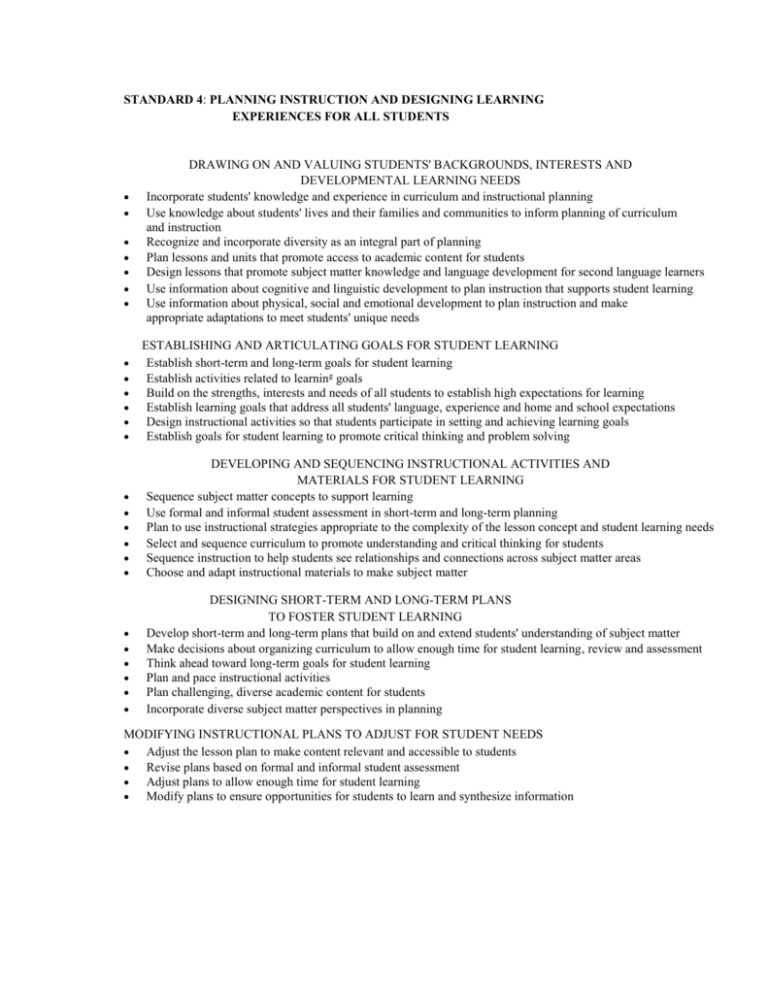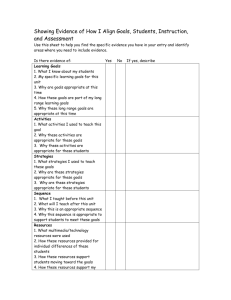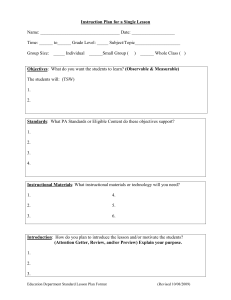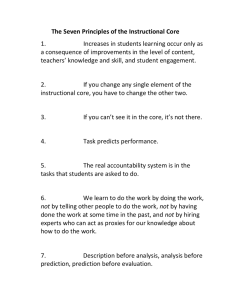standard 4: planning instruction and designing learning experiences
advertisement

STANDARD 4: PLANNING INSTRUCTION AND DESIGNING LEARNING EXPERIENCES FOR ALL STUDENTS DRAWING ON AND VALUING STUDENTS' BACKGROUNDS, INTERESTS AND DEVELOPMENTAL LEARNING NEEDS Incorporate students' knowledge and experience in curriculum and instructional planning Use knowledge about students' lives and their families and communities to inform planning of curriculum and instruction Recognize and incorporate diversity as an integral part of planning Plan lessons and units that promote access to academic content for students Design lessons that promote subject matter knowledge and language development for second language learners Use information about cognitive and linguistic development to plan instruction that supports student learning Use information about physical, social and emotional development to plan instruction and make appropriate adaptations to meet students' unique needs ESTABLISHING AND ARTICULATING GOALS FOR STUDENT LEARNING Establish short-term and long-term goals for student learning Establish activities related to learning goals Build on the strengths, interests and needs of all students to establish high expectations for learning Establish learning goals that address all students' language, experience and home and school expectations Design instructional activities so that students participate in setting and achieving learning goals Establish goals for student learning to promote critical thinking and problem solving DEVELOPING AND SEQUENCING INSTRUCTIONAL ACTIVITIES AND MATERIALS FOR STUDENT LEARNING Sequence subject matter concepts to support learning Use formal and informal student assessment in short-term and long-term planning Plan to use instructional strategies appropriate to the complexity of the lesson concept and student learning needs Select and sequence curriculum to promote understanding and critical thinking for students Sequence instruction to help students see relationships and connections across subject matter areas Choose and adapt instructional materials to make subject matter DESIGNING SHORT-TERM AND LONG-TERM PLANS TO FOSTER STUDENT LEARNING Develop short-term and long-term plans that build on and extend students' understanding of subject matter Make decisions about organizing curriculum to allow enough time for student learning, review and assessment Think ahead toward long-term goals for student learning Plan and pace instructional activities Plan challenging, diverse academic content for students Incorporate diverse subject matter perspectives in planning MODIFYING INSTRUCTIONAL PLANS TO ADJUST FOR STUDENT NEEDS Adjust the lesson plan to make content relevant and accessible to students Revise plans based on formal and informal student assessment Adjust plans to allow enough time for student learning Modify plans to ensure opportunities for students to learn and synthesize information







